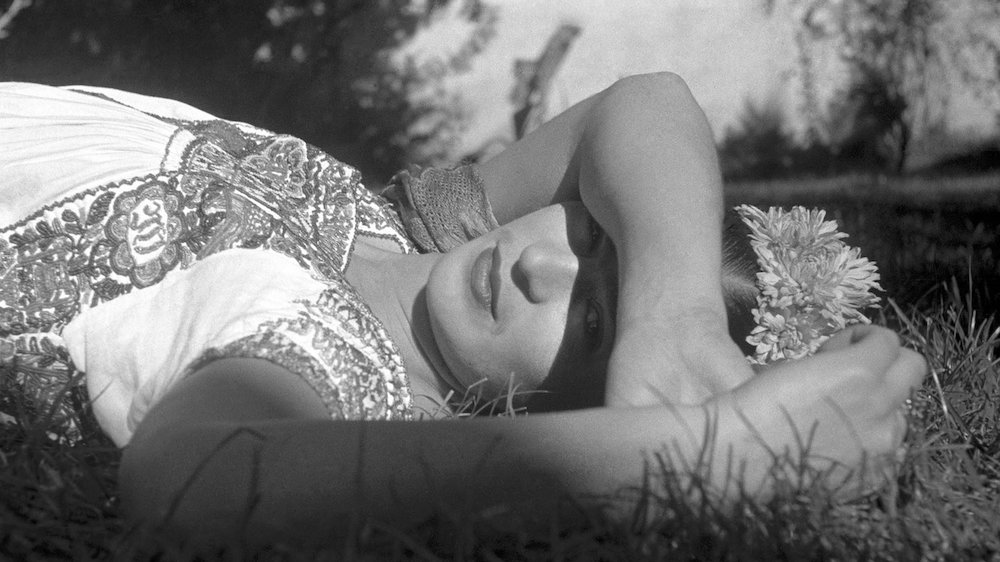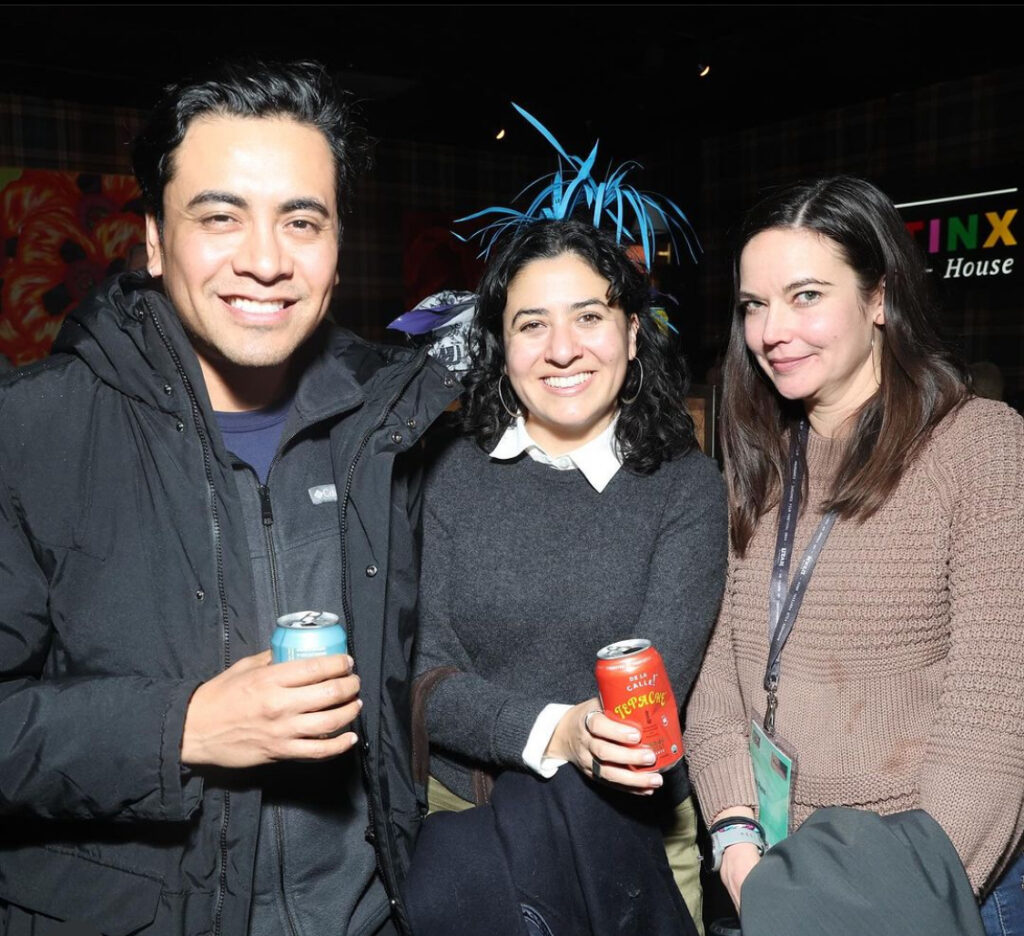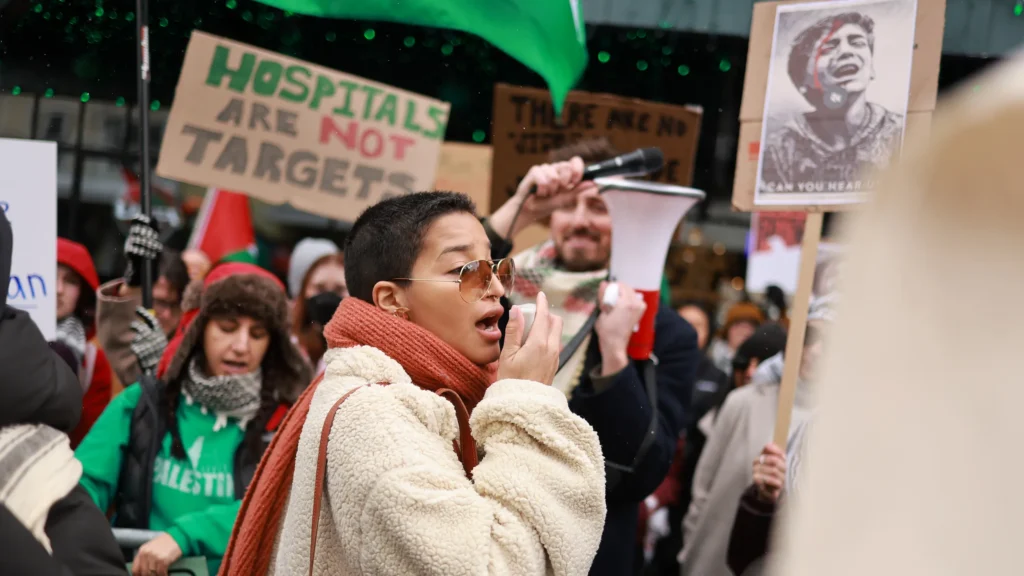This year, LatinaMedia.Co’s co-founders, Cristina Escobar and Nicola Schulze, attended the Sundance Film Festival in snowy Park City. It’s the ultimate gathering of Hollywood storytellers, stars, and fans. On Main Street, deals are made, stars mingle supplying the occasional selfie, and everyone’s a little high, thanks to the altitude. We were encouraged to see so many Latine filmmakers at the festival this year, even if being at a bougie entertainment event feels strange as our world burns. Read our conversation below as we delve into the ups and downs of Sundance 2024.
CRISTINA ESCOBAR: So in many ways Latines won Sundance. One of the most Latine films, In the Summers, with a Latina director, Latine cast, and Latine themes, won top honors (aka the US Dramatic Competition). While the Mexican film Sujo won on the international side, meaning overall Latina filmmakers took home the big awards in narrative storytelling. Both of these films are thoughtful, nuanced, and aesthetically driven, proving that Latine stories are universal (and they’re better when they’re hyper-specific).
NICOLA SCHULZE: So many amazing films featured Latine filmmakers in front of and behind the camera. Carla Gutiérrez’s latest documentary, FRIDA, underscores that even in a subject as thoroughly explored as Frida, there is always an uncharted dimension waiting to be uncovered.
Like many Latine kids growing up, I was exposed to everything Frida since childhood, absorbing her story through her art, stories, and even an occasional tote bag. For her part, Gutiérrez shared at a Sundance Q+A insights from her connection with Frida, spanning from the first painting that captivated her to the pivotal decision to create the documentary. Gutiérrez emphasized the power of allowing Frida’s words and art to speak for themselves, and her documentary invites the audience to witness a more profound understanding of this iconic figure, transcending the familiar narratives that have shaped her legacy.

CRISTINA ESCOBAR: Yes, and Sundance is so much more than feature-length films. For example, I was also impressed by some of the shorter stuff I saw from our community. Border Hoppers, a short film by Argentine director Nico Casavecchia and starring Dominican actress Gabriela Ortega, was super fun. A sort of psychedelic/magical-realism take on apps and migration that had me laughing out loud. La Mesías, a pilot episode by Spanish showrunners Javier Ambrossi and Javier Calvo, was also delightfully nutso, mixing genres and high and low-brow elements to much effect.
NICOLA SCHULZE: I hear you but I have to shout out another film I loved – Love Me. It premiered at Sundance and stars Kristen Stewart and Steven Yeun in a love story between a buoy and a satellite. It is a robotically inclined epic that takes place after humans have been wiped off the planet. At its heart, the film explores what it means to be human and what truly separates us from those machines.
CRISTINA ESCOBAR: It was also fun to see our stars celebrated. Pedro Pascal helped open the festival, thanks to his turn as another violent, baby-protecting stoic in Freaky Tales. Bay Area folks – and particularly Oakland people – are going to love that film when it comes out. Melissa Barrera also had a great performance as the lead in Your Monster. It was billed as a horror film, but honestly, the best thing about it was how funny Barrera was.
NICOLA SCHULZE: It was great to see her and fellow actor Indya Moore at the march for Palestine at Sundance, especially after Barrera was dropped from the upcoming Scream franchise. In a wealth and power enclave like Sundance, the festival and the environment were unsettling, considering the egregious acts of violence in Palestine.
CRISTINA ESCOBAR: Yes, it is a rough time to see all the corporate money thrown around when we know there are more pressing issues. It’s such a scene at Sundance but I’m glad we’re going at a time when the Latine community is straight-up rowdy at the festival. Everywhere I went (and maybe it was my itinerary), I felt like there were other Latines and people of color around. I know it’s still a rarified space but it’s good that we’re laying a claim to it. We deserve to be there as much as anyone.

NICOLA SCHULZE: I agree there is nothing more fun than being in a space with creators and I was lucky to spend my Sundance experience in a shared house with creators, filmmakers, artists, and activists committed to the idea that culture has the power to shape and transform our culture. Sundance serves as a reminder that without storytelling and those who shape and create the stories we tell ourselves true, lasting, and real change cannot be made.
CRISTINA ESCOBAR: That sounds like such a nurturing experience. I know it’s easy to feel helpless in the face of what even the Hague is calling genocide. Which is why I was glad to see protestors at Sundance. I wanted to capture some of the “Free Palestine” rally on Main Street for our readers but I couldn’t get a good shot without standing on the Zionist side, so I gave up and stood in the back of the crowd. From there I could hear Indya Moore speak and their words are so powerful and strong. I wish more folks would listen to them.

NICOLA SCHULZE: Agreed, it was evident to me that Sundance is not just a celebration of films but a testament to the power of storytelling in shaping our cultural narrative. It serves as a dynamic space where creators, artists, and activists come together to assert our presence in an industry that often overlooks our narratives.
Certainly, the festival’s unsettling backdrop, marked as it was by the disparities of wealth and power, highlights the need for continued activism. The march for Palestine, with notable voices like Indya Moore, underscored the importance of using platforms like Sundance to advocate for justice and challenge the status quo. As we navigate through these spaces, let us remain committed to amplifying voices that often go unheard, recognizing that true and lasting change is rooted in the stories we tell and the conversations we ignite.

